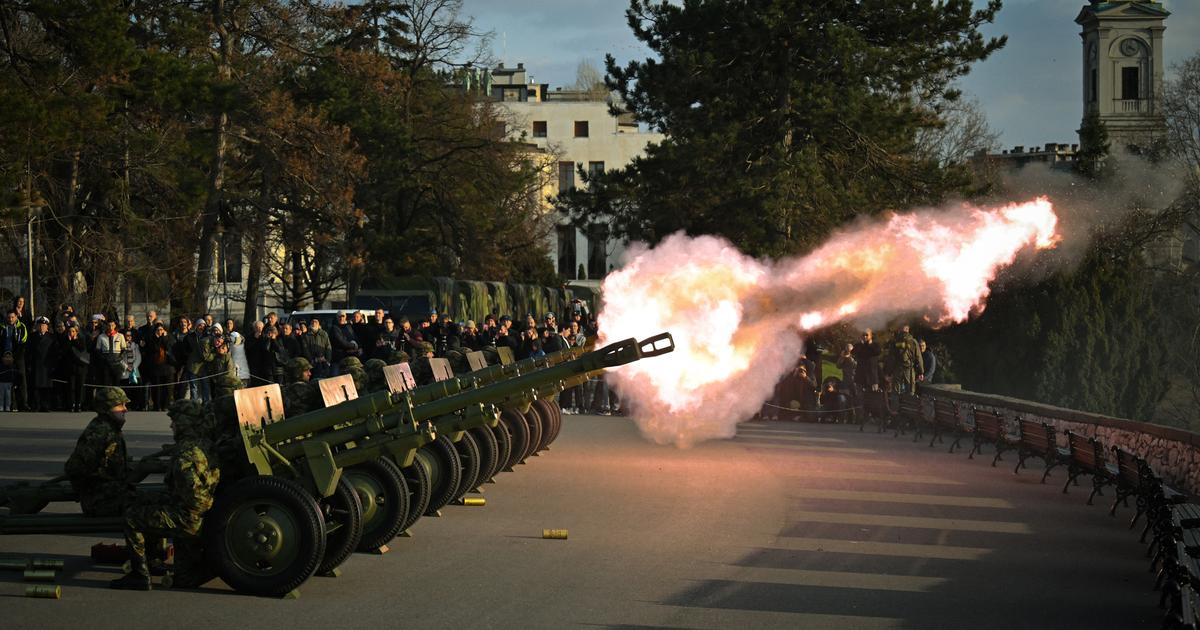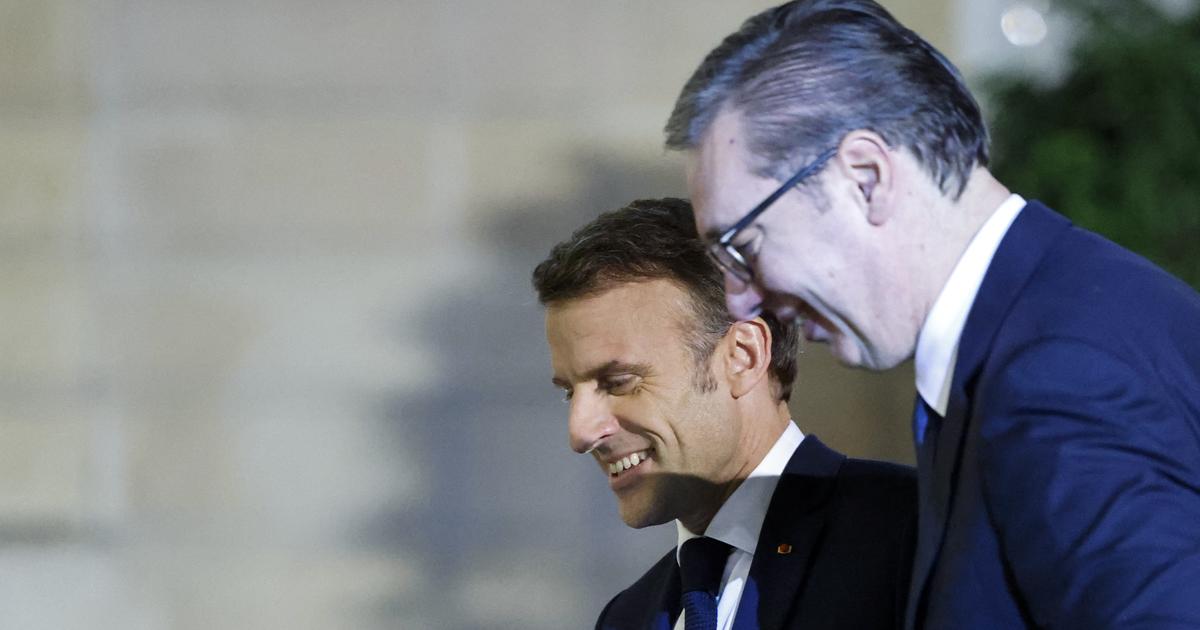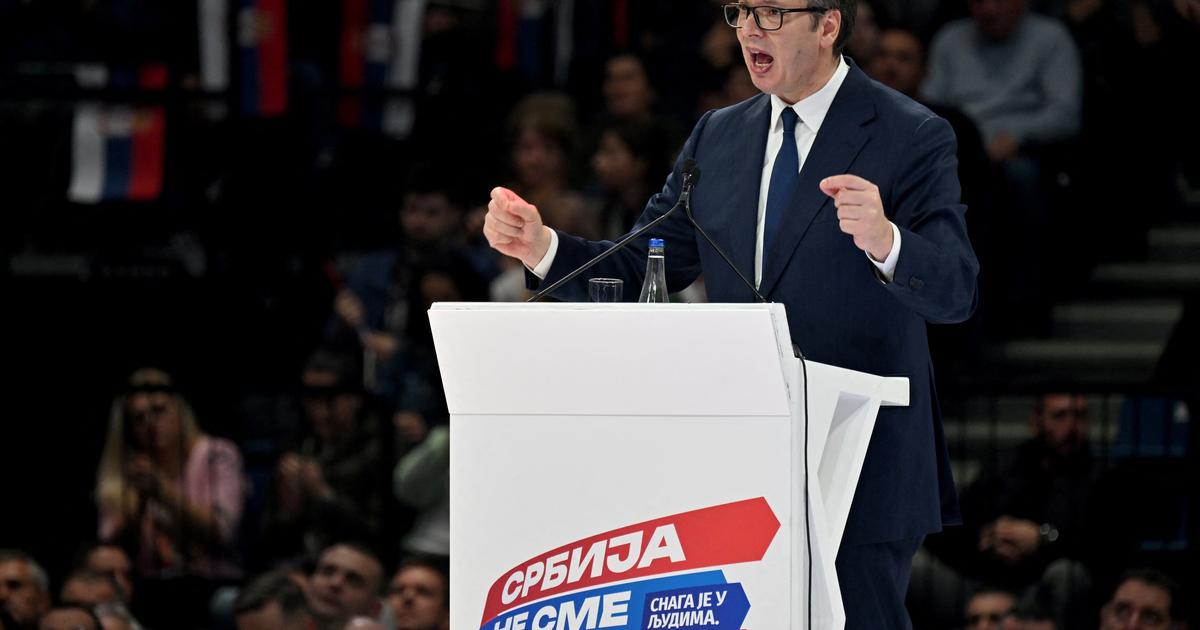Secretary General Stoltenberg speaks of "unacceptable" attacks: NATO is increasing its troop presence in Kosovo.
- Ethnic unrest in Kosovo: US imposes first sanctions on Kosovo
- Rallies in Belgrade: Russia sees connection between Kosovo and Maidan protests
- Alliance responds: NATO sends additional soldiers to reinforce KFOR troops
Update from May 31, 16:06 p.m.: Serbian tennis player Novak Djokovic has allegedly fueled the conflict with a political statement on the situation in Kosovo. After his opening victory at the French Open in Paris on May 29, he wrote: "Kosovo is the heart of Serbia. Stop the violence!" on the lens of a TV camera. At a subsequent press conference, Djokovic commented on his controversial message. "As a public figure," he feels "obligated to show support for our people and the whole of Serbia," the sports show quotes Serbian media reports. "As a Serb, it hurts me what is happening in Kosovo, our people have been expelled from the municipal office," said tennis star Djokovic, who has attracted attention several times with a questionable nationalist attitude.
The Serbian tennis star and 22-time Grand Slam tournament winner Novak Djokovic has often attracted attention with a questionable attitude. © James Ross/dpa
French Sports Minister Amelie Oudea-Castera has condemned Djokovic's statement and criticized it as "inappropriate". "When it comes to defending human rights and bringing people together around universal values, every athlete is allowed to do so," she said, according to Sportschau France 2. However, Djokovic's message was "militant, very political" and should not be repeated.
Update from May 31, 14:13 p.m.: Christian Schmidt, the UN High Representative for Bosnia and Herzegovina, spoke to Phoenix TV on May 31 about the recent unrest in the Serb-dominated north of Kosovo. He does not see the danger of an escalation and a new war between Serbs and Albanians or Kosovars. We are currently dealing with a "tactical, unfortunately violent confrontation" that does not reflect "the spontaneous popular anger of anyone" and could be settled through negotiations. "During my time as Secretary of State for Defence, I have experienced a great deal in Kosovo, which has been far more dramatic than what we are experiencing at the moment. I think that's limitable," says Schmidt.
U.S. excludes Kosovo from large-scale multinational maneuver
Update from May 31, 12:11 p.m.: The U.S. is responding to the ethnic unrest in Kosovo and has imposed a first sanction on the country. U.S. Ambassador to Pristina, Jeffrey Hovenier, told local media that his government would exclude Kosovo from the Air Defender 23 multinational air force, as reported by ntv. The exercise, which according to the Bundeswehr is the largest deployment exercise of air forces since NATO was founded, will involve 12 nations under the leadership of the Air Force from June 23 to 25. "For Kosovo, this exercise is over," Hovenier said. He blames the behaviour of the Kosovar government for this decision: "The measures taken by the Kosovar government (...) have created this atmosphere of crisis in the north."
NATO soldiers of the KFOR troops erect barricades made of barbed wire in Kosovo. © STRINGER/AFP
Hovenier also threatened that the U.S. could cut off diplomatic support for international recognition of Kosovo. "There is not much enthusiasm on the part of the United States to address Kosovo's other interests, such as getting involved in non-recognition cases or actively working to advance Kosovo's European or Euro-Atlantic path," he said. Kosovo's independence, proclaimed in 2008, is not recognized by many states, including China, Russia, but also some European countries.
Russia calls simultaneous rallies in Belgrade an attempted coup
Update from May 31, 10:40 a.m.: Demonstrations critical of the government in Serbia are being directly linked by Russia to the unrest in Kosovo. After a rally in Belgrade on May 28, Russian Ambassador to Serbia Alexander Botsan-Kharchenko spoke of a Maidan-style coup attempt against the Serbian government of President Aleksandar Vucic, as reported by the Russian news agency TASS. "This is part of hybrid warfare. I would like to emphasize that the anti-Belgrade forces acted almost simultaneously; they operate on two fronts - there is the situation in Kosovo and the attempts at a Maidan coup here in Belgrade," he said.
0
Also Read
Baerbock counters Putin: Germany closes four Russian consulates
READ
New Habeck hammer: penalties of up to one million euros are imminent
READ
After victory in Bakhmut: Wagner mercenaries and Russia's soldiers advance along highways
READ
Geywitz reports agreement on traffic light "heat plan" – FDP believes in "false report"
READ
Söder and Aiwanger crack symbolic mark in Bavaria survey - Greens lose dramatically
READ
Fancy a voyage of discovery?
My Area
Since May 8, several rallies have been held in Belgrade under the slogan Serbia against violence, following two consecutive days of shootings on May 3 and 4, including a shooting spree at a Mladenovac school that left eight dead. The protesters demanded the resignation of Interior Minister Bratislav Gasic and the head of the Security Information Agency Aleksandar Vulin. The demonstrators also demanded the closure of some pro-government media outlets that are said to spread violence and hatred. According to the Serbian Interior Ministry, more than 11,000 people took part in these rallies.
Conflict in Kosovo: NATO responds to riots
First reported on 31 May: Brussels/Washington – NATO is responding to violent clashes in Kosovo by strengthening the international protection force KFOR. The stationing of additional soldiers in the Balkan country is a precautionary measure, NATO commander Stuart B. Munsch said on Tuesday (30 May).
As NATO announced, reserve forces of the so-called Operational Reserve Force (ORF) for the Western Balkans will be deployed, which will be operational within seven days. In addition, an additional multinational battalion of reserve forces has been instructed to "reduce its operational readiness from 14 to seven days in order to strengthen KFOR if necessary."
NATO Secretary General Jens Stoltenberg said the "unacceptable" attacks must stop. Meanwhile, Serbian President Aleksandar Vucic blamed Pristina's "unilateral decisions" for Monday's escalation. The violence sets Kosovo and the entire region back and endangers rapprochement with NATO, Stoltenberg said.
Conflict in Kosovo
Kosovo, which is now inhabited almost exclusively by Albanians, declared independence in 2008. To this day, Serbia does not recognize this step and demands the return of its former province.
In 1999, after a NATO intervention against Serbia, KFOR invaded Kosovo with around 50,000 troops. On the basis of a mandate from the UN Security Council, it is responsible for ensuring security in the country. Today it still has about 3800 soldiers, most of them from Italy, the USA, Hungary and Turkey. Germany is still taking part in the KFOR mission with about 70 soldiers.
Conflict in Kosovo: Protests in Zvecan
During the protests in Zvecan (here is an opinion article on the Kosovo conflict), Italian and Hungarian KFOR soldiers had confronted Serbian demonstrators who wanted to storm the city administration. The soldiers were attacked with stones, bottles and incendiary devices. The police used tear gas.
According to the respective governments, 19 Hungarian and eleven Italian soldiers were injured in the clashes. Vucic spoke of 52 injured demonstrators. Kosovo police said they arrested five demonstrators.
Conflict in Kosovo: Dispute over local elections
In April, the Kosovar authorities held local elections in four Serb-majority towns. However, the Serbs largely boycotted the elections, so the Albanian minority took control of the local councils despite an overall turnout of less than 3.5 percent. The demonstrators are demanding the withdrawal of Kosovo's security forces from the region and the removal of ethnic Albanian mayors. (AFP/dpa/frs)







